THREAD: brazils shocking tariff surge will...
LifeLine™ Media threads use our sophisticated algorithms to construct a thread around any topic you want, providing you with a detailed timeline, analysis, and related articles.
News Timeline

US-CHINA IMPORT Tariffs Spark Fear and Chaos for Businesses
— A new 50% tariff on Chinese goods like smartphones and batteries will slam American businesses starting April 2025. This is the latest move in a trade fight that began with President Trump’s tough stance on China, which included a massive 145% tariff. Now, companies from small shops in Vermont to big airlines like Delta warn of higher prices and supply chain headaches. Goldman Sachs CEO David Solomon says business leaders would prefer lower tariffs, but many understand the need to protect U.S. interests. The European Union has blasted these tariffs as harmful taxes that could shake up the global economy. Small businesses are struggling too. Some local shops using American-made products may not feel much pain, but many others report shrinking profits and less hope for growth, according to the National Federation of Independent Business. Stock markets have dropped as worries grow over what comes next. Export-heavy countries like Germany are also feeling pressure as U.S. trade policies send shockwaves around the world. This story is still unfolding as businesses watch for more changes ahead.
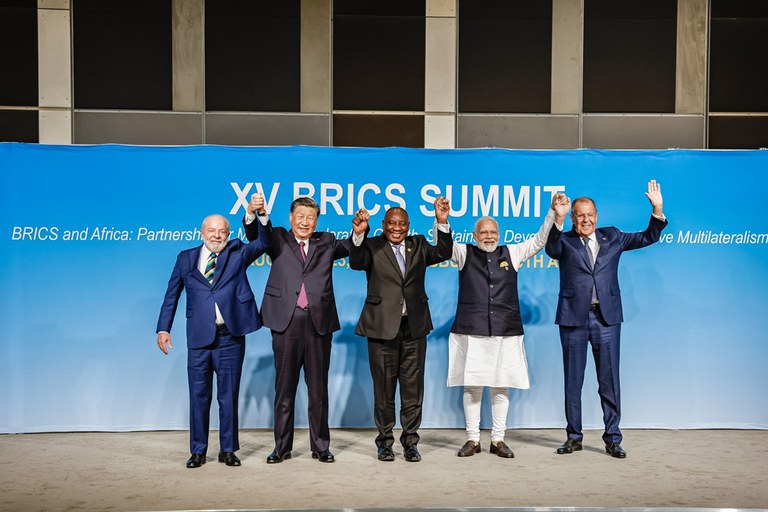
BRAZIL’S Bold Gamble: Global Power Play Ignites Trade WAR Fears
— Brazil is grabbing the world’s attention as it gets ready to host the BRICS summit in July 2025. President Lula da Silva is leading a busy schedule, with plans for a regional meeting in Honduras, an official visit to France, and support for peace talks between Russia and Ukraine during his trip to Portugal.
These moves come at a tense moment. President Trump has warned he may slap new tariffs on Russian oil if there’s no deal over Ukraine. Meanwhile, China is trying to pull Latin America closer through its CELAC forum, hoping to boost its influence in the region.
Brazil’s active diplomacy shows it wants a bigger role on the world stage. The country hopes to act as mediator between major powers like the US, Russia, and China while pushing for stronger ties in Latin America.
With trade wars looming and global tensions rising, Brazil’s bold approach could shape how these big issues play out — or backfire if things go wrong.

TRUMP’S Auto Imports TarifF Shock: “Liberation DAY” Ignites Hope For American Jobs
— President Trump just announced a 25% tariff on imported cars and parts, starting April 2, 2025. He calls it “Liberation Day” for American industry. The new tariffs will hit countries like Canada, Mexico, Japan, South Korea, and Germany. The Trump team says these tariffs will boost U.S. manufacturing and protect American jobs. They believe it’s time to put America first and make foreign countries play by our rules — even if there’s some short-term pain. Critics warn car prices could rise for families and that supply chains might get disrupted. Some experts say there could be temporary shutdowns in auto plants while companies adjust. This move is part of Trump’s bigger plan to target steel, aluminum, and other imports from places like China and Venezuela. India may get special treatment as talks continue. Europe is already threatening to fight back over past metal tariffs.

TRUMP’S “Liberation DAY” Shocks Markets: Wall Street Reels as Tariffs Spark Global Showdown
— President Trump’s “Liberation Day” tariffs have rocked the markets. The Dow dropped more than 2,000 points on some days. The S&P 500 and Nasdaq both fell into bear market territory. These tariffs, reaching up to 125% for some countries, are the highest seen in a hundred years. China, the EU, and Japan are feeling the pain most. China hit back with its own tariffs on American goods. Japan’s finance minister warned of global trouble ahead. Still, US officials say they’re hopeful about future trade talks. Big companies are taking hits too. CarMax shares sank after weak earnings reports. Nvidia tumbled more than 20% from its high point this year. UnitedHealth lowered its profit forecast because Medicare costs keep rising. Experts think this wild ride will last until trade fights settle down. Some industries are holding up better than others under pressure. The Federal Reserve might cut rates three times this year if things get worse — some warn a financial crisis could happen if tariff chaos continues much longer.

TRUMP’S Tariff CUT Sparks Stock Market Surge
— In a bold move, President Donald Trump announced a temporary cut in tariffs for many countries, while raising them for China. This decision caused U.S. stock indexes to soar, with the S&P 500 seeing its biggest gain since 2008, closing 9.5% higher. Trump’s tariff strategy aims to increase pressure on China amid ongoing trade tensions.
The announcement led to a sharp drop in the Cboe Volatility Index (VIX), which fell by 15 points to 37.2 after news of a 90-day tariff pause for most nations. However, China’s response was quick as they imposed an 84% retaliatory tariff on U.S. goods following the new U.S. levy on Chinese imports that took effect at midnight. This escalation adds uncertainty to global markets despite the initial boost in U.S stocks.
Meanwhile, on the home front, the U.S government has started monitoring immigrants’ social media accounts for signs of antisemitism as part of enhanced security measures. This initiative reflects growing concerns over hate speech and its potential impact on national security and social cohesion within immigrant communities across America.;
TRUMP’S 104% China Tarifs Stun Global Markets
— The UK and EU stock markets are feeling the pressure as President Trump’s tariffs, including a steep 104% on Chinese goods, take effect. EU trade commissioner Maroš Šefčovič announced that the EU will not retaliate against these U.S. tariffs, citing limited options for response. European Commission President Ursula von der Leyen suggested a “zero-for-zero” trade deal to the White House amid talks of an EU-US free trade zone by Trump adviser Elon Musk.
Concerns about the economic impact of these tariffs are growing in Europe. Patrick Martin, head of France’s Medef business lobby, warned that U.S. tariffs could harm France’s economic growth and possibly lead to a recession. Meanwhile, Wall Street has also taken a hit as hopes for tariff delays fade, with the S&P 500 dropping 1.6%.
Elon Musk has publicly criticized Trump adviser Peter Navarro over comments related to Tesla and the broader effects of U.S. tariffs on American businesses. In other business news unrelated to tariffs, a Chinese billionaire is looking to purchase multiple Hudson’s Bay locations in Canada due to an emotional connection with the brand and aims to prevent its financial collapse. Binding bids for these assets are expected by April 30th with lease offers due by May 1st.;

US TRADE Policies Cause GLOBAL Economic Jitters
— Recent U.S. tariffs have left Canadian small businesses facing economic challenges, leading to job cuts and price hikes. The Canadian Federation of Independent Business reports nine percent of owners have issued layoff notices due to these tariffs. Businesses are raising prices by an average of 3.7 percent this month as they struggle with rising costs and decreased consumer spending.
In Alberta, business leaders feel cautiously optimistic after avoiding new U.S.-imposed tariffs that threatened the energy sector. Adam Legge from the Business Council of Alberta feels relieved but remains wary about future trade developments under current policies.
President Trump’s tariff strategy aims to equalize import taxes with those imposed by other nations, sparking debate over its economic impact on sectors like agriculture and manufacturing. Meanwhile, Japan’s Prime Minister Shigeru Ishiba expressed disappointment over Japan’s exclusion from tariff exemptions and plans support for affected industries domestically.
These developments highlight growing concerns about global economic instability driven by U.S. trade policies, particularly affecting small businesses worldwide as they navigate uncertain financial landscapes.

TRUMP’S Trade Policy Shocks: US Stocks Plunge in Market Chaos
— The EURO has surged to a six-month high as investors react to the latest U.S. tariff announcements. Meanwhile, the Australian dollar has taken a hit, reflecting global market volatility. These currency shifts highlight ongoing economic uncertainties fueled by international trade tensions.
U.S. stock futures have plummeted after China’s retaliatory tariffs on American goods, marking another phase in the global trade conflict. The Dow Jones dropped 1,679 points, causing widespread concern among investors and financial strategists who urge calm and strategic planning during these turbulent times.
Bitcoin ETFs saw nearly $100 million in net outflows as markets reacted sharply to tariff news from the Trump administration. This exodus underscores investor anxiety and uncertainty about future economic conditions amid escalating trade disputes with China.
Goldman Sachs has revised its oil price forecasts downward due to fears of a potential recession and increased supply from OPEC+. Gold prices have steadied after an initial selloff triggered by aggressive U.S. tariff policies, indicating cautious optimism among investors seeking safe-haven assets in uncertain times.

CHINA’S 34% Tariff Shock: How It Could Hurt American Wallets
— China has slapped a 34% tariff on U.S. goods, ramping up trade tensions. This follows recent U.S. tariffs on Chinese imports, sparking fears of a trade war.
Experts warn these tariffs might harm American businesses and consumers by raising prices and slowing economic growth. Washington is concerned about undoing post-pandemic recovery efforts.
The Trump administration is considering countermeasures and may seek international support to tackle China’s trade practices. This situation has ignited debates over the future of U.S.-China relations and global trade dynamics.
Financial markets reacted quickly, with stocks dropping due to fears that escalating conflicts could further destabilize the global economy. These developments could significantly affect both U.S.-China relations and international markets.
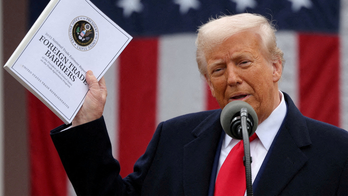
TRUMP’S Trade WAR Shocks: China And EU Face Major Impacts
— President Donald TRUMP announced sweeping tariffs affecting nearly all U.S. trading partners. China and the EU are hit hardest. The White House imposed a 10% tariff on all imports, with China facing an additional 34% on top of an existing 20%, totaling a hefty 54%. This move is just shy of Trump’s campaign promise of a 60% tariff on Chinese goods.
China reacted strongly, promising countermeasures against what it calls “protectionism.” The Chinese Commerce Ministry argues that trade wars have no winners and urges the U.S. to resolve differences through fair talks. Meanwhile, European nations face a blanket 20% tariff along with existing tariffs on steel, aluminum, and car exports.
Canada’s Prime Minister Carney has vowed to “fight” these tariffs as other world leaders assess their economic impact. The European Union has also promised retaliation against Trump’s aggressive trade policies. As tensions rise globally, nations brace for potential economic fallout from this escalating trade war initiated by the U.S..

GOLD PRICES Surge: Brace for Economic Shockwaves from New US Tariffs
— Gold prices have surged as investors brace for the U.S. “Liberation Day” tariff announcement. This has led to cautious trading, with businesses gearing up for possible economic shifts.
The jump in gold signals a move towards safety amid uncertainty over trade relations and policies under the current administration. Many companies are rethinking strategies due to potential tariff impacts.
Analysts worry about major economic fallout, especially for export-reliant industries. The business community is closely watching international reactions and possible retaliatory measures that could escalate global trade tensions.
TRUMP’S Bold Trade Move Shakes Global Markets
— Former President Donald Trump has signed orders for “reciprocal tariffs” aimed at countries with unfair trade practices. This plan is to protect American jobs by taxing goods from nations harming the U.S. economy. It’s a major shift in U.S. trade policy, affecting many imports.
Trump calls these tariffs vital to balance foreign advantages over American manufacturers, showing his focus on American workers and industries. This aligns with his re-election strategy, emphasizing economic nationalism as a key point. Supporters see it as reclaiming economic control, while critics warn of possible retaliatory tariffs and tense international relations.
Economists are split on the effects, worried about complicating U.S. trade further and raising consumer costs if other countries retaliate. The announcement has sparked mixed reactions across political lines, showing different views on its economic impact potential.
As Trump boosts his campaign efforts, this sweeping tariff policy will be watched closely by both domestic and international stakeholders for its effects on global trade dynamics and the future direction of the U.S economy’s path forward.

TRUMP’S Targeted Tarif Plan Ignites Stock Surge
— Global stocks soared on Monday, fueled by gains in U.S. markets. Reports suggest President TRUMP’s tariff strategy is more targeted than expected, boosting investor confidence and risk appetite.
U.S. Treasury yields rose with the optimistic outlook on tariffs. Investors hope a targeted approach will ease potential economic disruptions. The market’s reaction shows strong support for Trump’s strategic trade policy shift.
Meanwhile, the IRS expects a significant drop in tax revenue — over 10% by April 15th — according to the Washington Post. This decline raises concerns about fiscal health and future government funding.
In currency markets, the dollar strengthened against both the euro and yen as U.S. business activity improved in March. Bitcoin analysts predict a potential surge to $110K before any major correction, reflecting ongoing interest in cryptocurrency markets.

TRUMP’S BOLD Trade WAR: Tariffs on Canada, Mexico, and China
— President Donald Trump has reignited trade tensions by imposing new tariffs on Canada, Mexico, and China. These include a 25% tax on imports from Canada and Mexico and a 10% tariff specifically targeting Canadian energy products. This move is expected to provoke swift retaliation from these nations.
Trump argues that trade disputes with these countries have harmed U.S. interests. China’s national legislature criticized the tariffs, stating they damage both economies and undermine mutually beneficial trade relations. Canadian Prime Minister Justin Trudeau questioned the rationale behind the tariffs, suggesting they aim to weaken Canada’s economy.
Financial markets reacted negatively to the announcement, raising concerns about inflation and uncertainty in international trade relations. Analysts warn this could lead to broader economic conflicts affecting both U.S. and global economies.
Mexico and Canada have yet to respond publicly but are expected to address the issue soon in press conferences. Lawmakers in Congress express concerns over potential fallout from such aggressive measures while international trade organizations closely monitor the situation for its global economic impact.

TRUMP’S Trade WAR: Global Markets in Chaos
— President Donald TRUMP’s recent tariffs have sparked swift retaliation from Mexico, Canada, and China. These actions have thrown financial markets into chaos, raising fears of inflation and uncertainty for businesses.
Imports from Canada and Mexico now face a 25% tariff, with Canadian energy products specifically taxed at 10%. This move has heightened global trade tensions significantly.
China responded quickly to the U.S. tariffs, escalating an already heated international dispute. A Chinese spokesperson warned that these measures could harm the U.S. economy by disrupting beneficial trade relations.
Analysts worry about potential backlash against U.S. exports as these trade disputes unfold. The situation is seen as a risky maneuver that might reshape global trade dynamics and impact both consumers and businesses in the long run.

NEW DUTY Shock: Retail Prices to Skyrocket, Consumers Worried
— Retailers are raising concerns about a looming price surge. A new 25% duty on exports from Mexico and Canada is set to increase costs. This change could lead to higher prices for shoppers almost immediately.
The duty affects a wide range of goods, impacting everyday items. Retailers warn this could disrupt supply chains and limit product availability. Shoppers should brace for potential price hikes at local stores.
Efforts to ease these effects are underway, but challenges remain tough. Businesses might need new strategies to handle rising costs. The economic impact of this policy change deserves close attention from policymakers and the public alike.

CHINA STRIKES Back: US Farmers Face Uncertain Future in Trade WAR
— China swiftly hit back at new U.S. tariffs by imposing higher import taxes on $21 billion of American agricultural goods. This move ramps up tensions between the world’s two largest economies, edging them closer to a trade war.
Despite the increased tariffs, China’s futures markets stayed steady, showing strength amid this economic clash. The Chinese government has stated it won’t be cowed by these new actions from the Trump administration.
This situation highlights the growing economic rivalry and its impact on global trade relations, especially in agriculture — a vital sector for both countries. As this dispute unfolds, American farmers might struggle to keep their export markets in China.

TRUMP’S Bold Trade Plan Sends Global Markets Into Turmoil
— President Donald TRUMP is set to announce new reciprocal tariffs on Thursday. These tariffs aim to match the tax rates other countries impose on U.S. imports. This move is part of Trump’s strategy to reshape international trade and counteract barriers that hurt American businesses.
Trump’s plan has sparked discussions among global trading partners, potentially impacting economic relations and market stability. The announcement follows a memo he signed, directing his team to calculate duties that align with those charged by other nations.
In addition to trade policy changes, the Trump administration has started workforce reductions across federal agencies, affecting recent hires in departments like Education and Energy. These actions reflect a broader agenda focused on reducing government size and boosting efficiency.
Meanwhile, Southern California faces severe weather threats as heavy rains prompt evacuations due to potential debris flows in wildfire-scarred areas. Residents are urged to stay alert as CalTrans crews work tirelessly to reduce flooding risks in affected regions.

TRUMP’S Bold Trade WAR: New Tariffs Spark Economic Jitters
— President Donald Trump has announced a 25% tariff on goods from Canada and Mexico, and a 10% tariff on Chinese products. This bold move is expected to provoke retaliation, raising fears of a broader trade war. Republicans largely support the decision, but industry groups and Democrats warn of possible price hikes that could worsen inflation.
The tariffs are likely to affect multiple sectors, sparking discussions about inflationary pressures and reduced consumer spending. Economists worry about the impact on market stability and growth. The political landscape is divided, with some lawmakers backing the tariffs as protection for American industries while others worry about international relations and domestic prices.
Analysts caution that retaliatory measures could escalate tensions further, leading to an unstable economic environment if not managed carefully. This development highlights ongoing international trade tensions with significant implications for America’s future economic stability. As this situation unfolds, it remains crucial to monitor its effects on both domestic markets and global economic relations.

CHINA’S Record Trade Surplus Sparks Global Alarm
— In December 2024, CHINA reached a record trade surplus of $104.8 billion. This was due to a surge in exports before President-elect Donald Trump could impose tariffs. The New York Times reported that China’s export boom is causing friction with many trade partners, not just the United States. Several nations are now erecting tariff barriers against Chinese products to protect their markets.
China’s export success has been an economic boon, creating millions of jobs in sectors like manufacturing and engineering. The nation dominates industries such as solar panels and is becoming self-sufficient in areas like commercial jets. However, China still struggles with energy independence outside solar power.
The automobile industry showcases China’s manufacturing strength, evolving from a major importer to the world’s largest car exporter in two decades. Critics argue that China’s overcapacity and government subsidies distort global auto markets by flooding them with cheap vehicles amid declining local demand.
While record exports might seem beneficial for China, they could lead to financial strain if companies face bankruptcy due to low prices and excess inventory as tariff barriers persist globally. The auto industry may have peaked, facing strong resistance from politically influential foreign markets protecting their own electric vehicle sectors through tariffs and subsidies.
— Canada Prepares Tariff Retaliation Amid Trade Tensions A Canadian government official announced that the country is considering potential tariff targets in response to ongoing trade disputes

— BRICS Poised to Lead Global Economic Growth, Says Putin Russian President Vladimir Putin asserts that the BRICS nations will be the primary drivers of economic expansion, overshadowing Western influence

— S&P 500 SOARS to NEW RECORD CLOSE The index surged as traders sought to capitalize on the momentum from recent Federal Reserve interest rate cuts
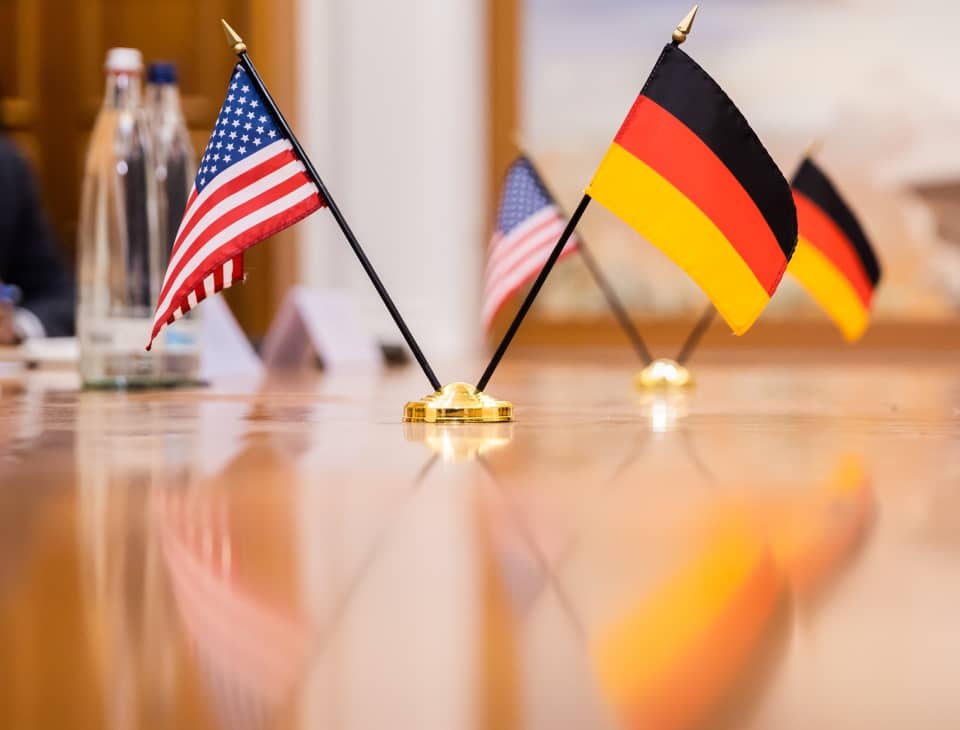
— China Overtaken by US as Germany’s Top Trading Partner The United States surpasses China to become Germany’s largest trading partner, displacing China from its long-held position

— ***Consumer Sentiment Plummets Amid Soaring Inflation Concerns*** Consumer sentiment takes a nosedive as worries over inflation reach new heights

Video
GLOBAL ELECTIONS Shock: What’s at Stake for Iran, Britain, and France
— Over the next week, voters in countries like Iran, Britain, and France will head to the polls. These elections come at a critical time with global tensions high and public concerns over jobs, climate change, and inflation.
In Iran, Supreme Leader Ayatollah Ali Khamenei seeks a successor for President Ebrahim Raisi following his recent death. Candidates include hard-liners Saeed Jalili and Mohammad Bagher Qalibaf as well as reformist Masoud Pezeshkian.
These elections could significantly impact global politics amid ongoing wars in Europe, the Middle East, and Africa. The outcomes may reorient international relations during this period of mutual suspicion among major powers.
More Videos
Invalid Query
The keyword entered was invalid, or we couldn't gather enough relevant information to construct a thread. Try checking the spelling or entering a broader search term. Often simple one-word terms are enough for our algorithms to build a detailed thread on the topic. Longer multi-word terms will refine the search but create a narrower information thread.
Politics
The latest uncensored news and conservative opinions in US, UK, and global politics.
get the latestLaw
In-depth legal analysis of the latest trials and crime stories from around the world.
get the latest
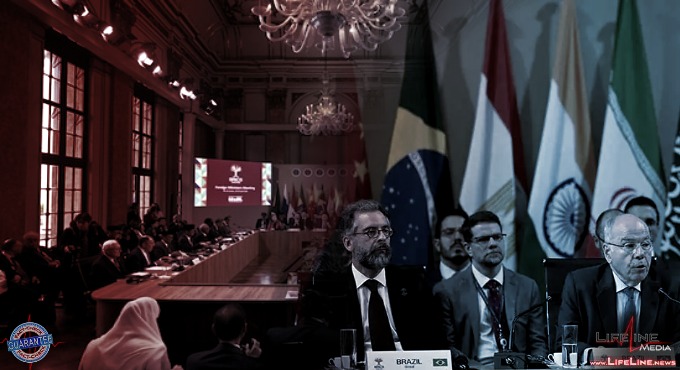

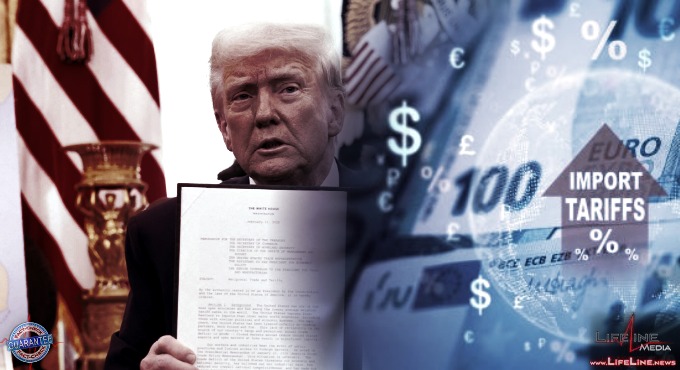

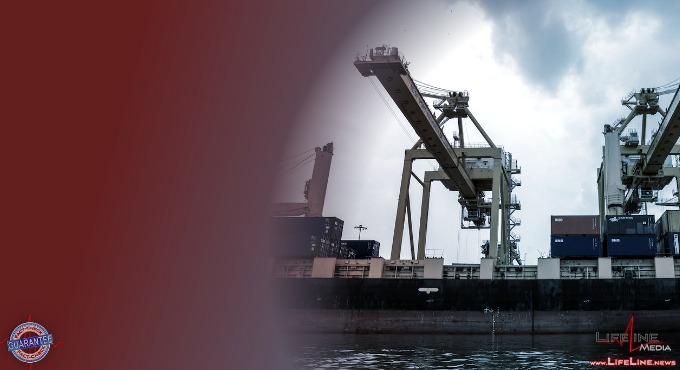

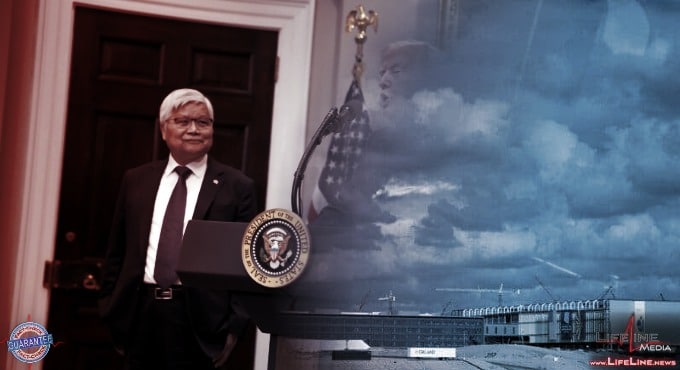

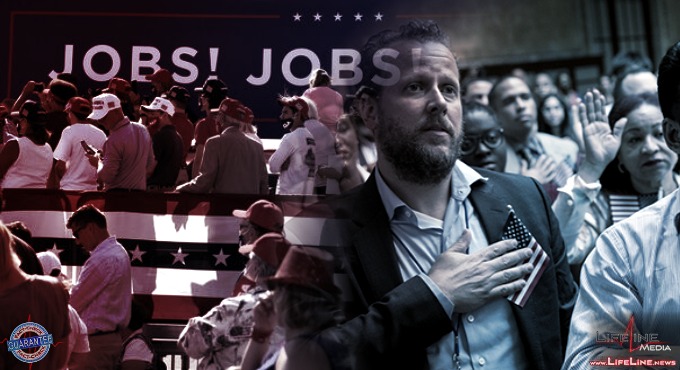
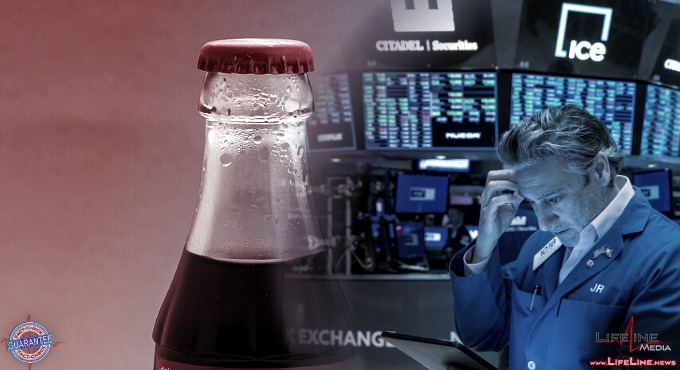
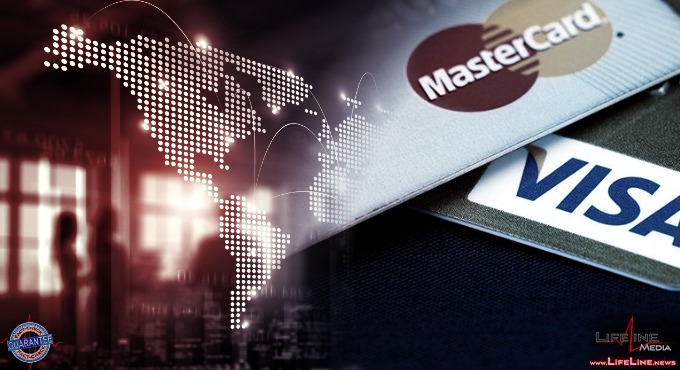

Social Chatter
What the World is Saying🚨🇦🇷MILEI’S “CRAZY” PLAN WORKED—ARGENTINA’S PAYCHECKS JUST HIT A 6-YEAR HIGH Private sector wages in Argentina just spiked to their best level since 2018—real wages hit...
. . .Oil prices are down, interest rates are down (the slow moving Fed should cut rates!), food prices are down, there is NO INFLATION, and the long time abused USA is bringing in Billions of Dollars...
. . .Oil prices are down, interest rates are down (the slow moving Fed should cut rates!), food prices are down, there is NO INFLATION, and the long time abused USA is bringing in Billions of Dollars...
. . .Oil prices are down, interest rates are down (the slow moving Fed should cut rates!), food prices are down, there is NO INFLATION, and the long time abused USA is bringing in Billions of Dollars...
. . .The interest on the federal debt has escalated dramatically in recent years and will continue to gobble up more and more revenue…
. . .